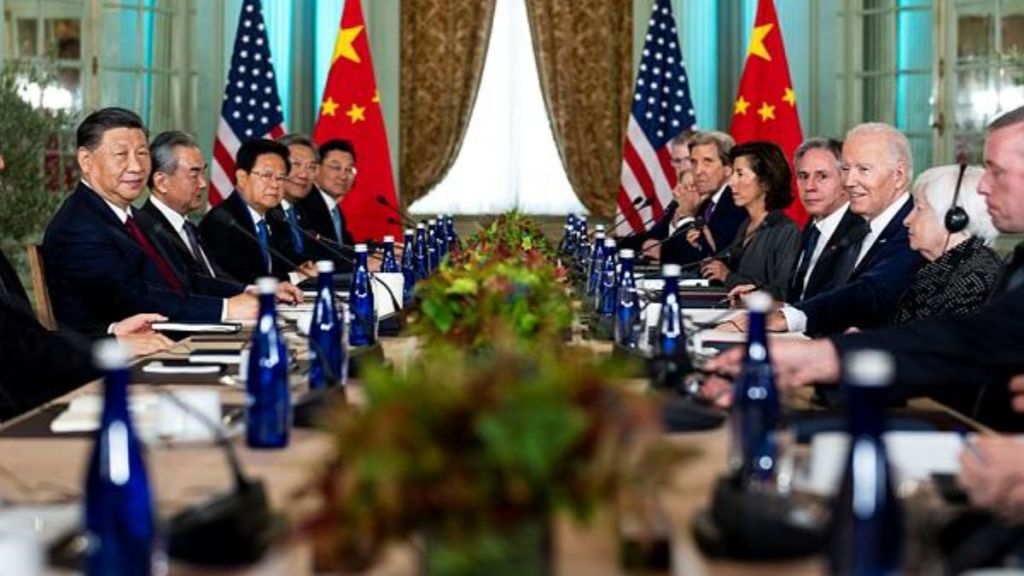In a diplomatic rendezvous during the Asia-Pacific Economic Cooperation (APEC) Summit in San Francisco, Chinese President Xi Jinping engaged in a four-hour discussion with U.S. President Joe Biden. Despite the warm reception Xi received, Biden’s unwavering stance on China remained evident, creating a diplomatic narrative tinged with echoes of the past.
The meeting, hosted at the Filoli Estate in Woodside, California, delved into a spectrum of contentious issues. Biden’s recurring characterization of Xi as a dictator, reiterated during a press conference, underscored the persistent ideological disparities. However, Biden nuanced this critique by acknowledging China’s evolution into a responsible nation, portraying the intricate nature of the U.S.-China relationship.
As reported by China’s Global Times, Xi Jinping asserted China’s position against suppression, emphasizing the impracticality of bitterness or estrangement between the two nations. Discussions included Taiwan, with Xi expressing China’s lack of intention to attack the island and urging the U.S. to halt weapons provision to Taiwan, a lingering point of contention.
A significant outcome of the meeting was an agreement to prevent the application of artificial intelligence in nuclear command, signaling a shared understanding of strategic issues. Additionally, Biden announced China’s commitment to controlling the components of the fentanyl drug, aligning with efforts to address the opioid crisis in the US. The leaders also reached an accord on military communication to mitigate the risk of errors and prevent potential conflicts.
Despite diplomatic tensions, Biden labeled both China and the U.S. as responsible countries in a post-meeting tweet, marking a departure from historical categorizations of China as a “rogue nation” alongside countries like North Korea, Iran, and Cuba.
The meeting unfolded against the backdrop of prior incidents, including the sighting of Chinese spy balloons over sensitive US. locations in February. This event had escalated tensions, leading to the cancellation of the U.S. Secretary of State Antony Blinken’s planned visit to China. The subsequent downplaying of the spy balloons by China and America’s firm response contributed to strained relations leading up to the Biden-Xi meeting.
In conclusion, the Biden-Xi meeting, characterized by ideological differences and historical tensions, demonstrated a commitment to dialogue and addressing key global issues. The complex relationship between these two superpowers, encompassing areas of agreement and disagreement, reflects the complexity of 21st-century international relations. As both nations navigate the terrain of competition and cooperation, the world observes with keen interest the trajectory of the US-China relationship.

